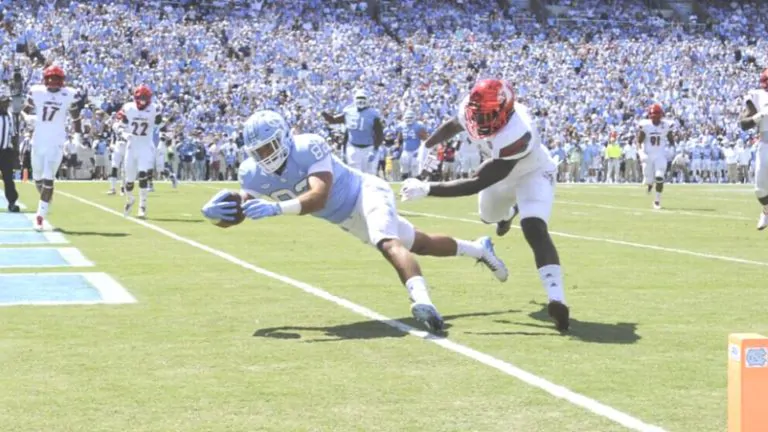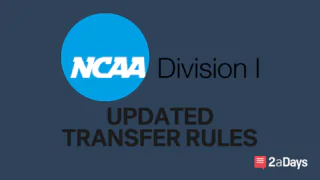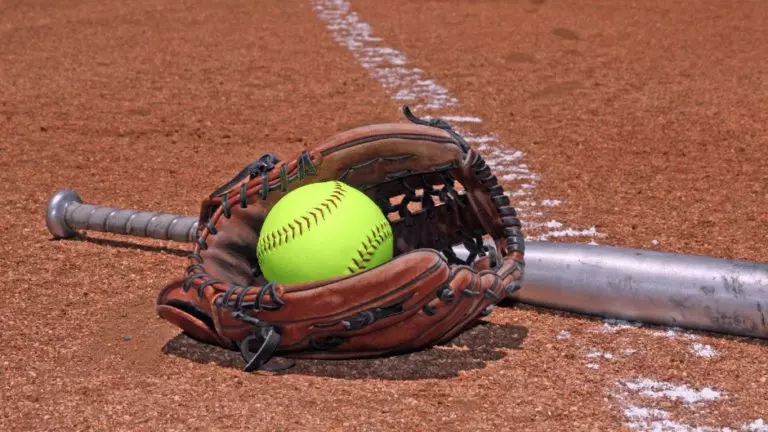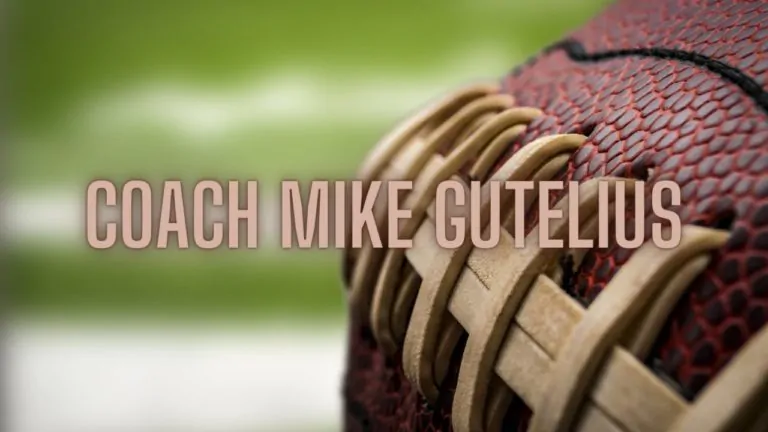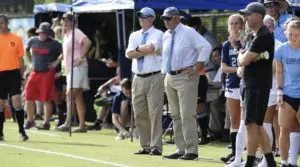With the physical demands of high school and college sports today, it is rare that an athlete makes it through their playing career without some sort of injury. For example, the NCAA reports that the overall injury rate in NCAA football is 8.1 injuries per 1,000 athlete exposures. This is with games and practices combined. There were more than 41,000 injuries and 25 million athlete exposures from 2004 to 2009. Note that NCAA football athletes are nearly seven times more likely to be injured during a game than in practice.
Kate Morris former UNC soccer player who had to bow out of her sport due to an injury interviewed four Division I athletes at the University of North Carolina at Chapel Hill. These athletes share their experiences and offer advice on how to overcome adversity.
UNC Football Player Brandon Fritts
Brandon Fritts, a tight end for the University of North Carolina Football team. As a Redshirt Freshman, Brandon appeared in all 14 games, caught 16 passes and scored a touchdown in the Russell Athletic Bowl. During his sophomore season, Brandon's season ended earlier than expected due to an injury. In his junior season, Brandon returned to health and played in 11 games and scored four touchdowns for the Tar Heels. Unfortunately, Brandon was again sidelined after suffering a torn ACL.
2aDays: How did you obtain your injury, and the moment the injury occurred, what was the first thing that went through your mind?
Brandon: I tore my ACL in spring practice back in March. When it first happened, I thought about the long road of surgery and rehab I had in front of me because I had already been through it once before.
2aDays: Knowing that you were going to have a long road to recovery, what were you thinking about mentally? Were you determined to work hard to get better? Did you ever doubt that you would be 100 percent? Do you feel as though you are the same player as you were before?
Brandon: As I said before, going through it once before, I knew what to expect in the next upcoming months. Coming out of surgery, I felt like my motivation was the highest because you want to get back on your feet and back to doing normal everyday activities again. Personally, I would not say I liked the feeling of needing help to do everyday things. It pushed me physically and mentally every day in rehab. Being 6.5 months out now, I feel like I am getting close to the same player I was prior. I still have some deficiencies I need to work on, but I feel like I am in a good place.
2aDays: How did the coaches react to your injury? Were they helpful or not? Please explain.
Brandon: My coaches were and still are extremely helpful in my recovery. A few months ago, Coach Brown called me into his office with my position coach and told me that weather I decided to come back this year or not, they are behind me 100%. That definitely was reassuring to my mindset at the time.
2aDays: Knowing that an injury can put mental stress on a college athlete would you recommend that an athlete meets with a sport psychologist to discuss his/her concerns, depression, feelings of being left out, feelings of not recovering, etc. If so, why or why not?
Brandon: I believe it varies from person to person. I personally have met with sports psychologists before and have found it to be helpful. I think people deal with it differently. I find a lot of comfort in just being around my teammates and cracking jokes with them.
2aDays: Being that you have had an injury, it makes you someone of an expert, what is the best piece of advice you could give to an athlete going through a serious injury?
Brandon: The best piece of advice I can give is to find a way to get better each day. The rehab process can get long and draining. There will be plenty of days that you will not feel like putting in some work. Pushing through and finding ways to get better and stronger each day will help you mentally and physically in the long run.
Former UNC Lacrosse Player Mike D'Alessandro
Photo by GoHeels.com
Unfortunately, Mike had to retire due to multiple knee surgeries but decided to stay around the team as an Undergraduate Assistant Coach, helping lead the team off the field.
2aDays: How did you obtain your injury, and the moment the injury occurred, what was the first thing that went through your mind?
Mike: I obtained my first knee injury my Junior year of HS playing lacrosse in the semi-finals of the playoffs. The first thing that went through my mind was this was the worst pain that I have ever had in my entire life. Once I gathered myself, my first real thoughts were, am I going to miss my senior year football season. Which was heartbreaking to realize.
2aDays: Knowing that you were going to have a long road to recovery, what were you thinking about mentally? Were you determined to work hard to get better? Did you ever doubt that you would be 100 percent? Do you feel as though you are the same player as you were before?
Mike: I have numerous knee injuries, but I will stick to my thoughts after my very first one. It was a new thing to me as I never would've thought something like this would happen to me. I knew it would be a long road to recovery, but I read about many athletes who came back stronger and faster. I knew I had a full career and I might play after I healed. I definitely doubted it after my next couple of injuries, but after the first time I was very confident I would come back the same, and I did for a while until I got hurt again.
2aDays: How did the coaches react to your injury? Were they helpful or not? Please explain.
Mike: My high school coaches were different; my lacrosse coach was very helpful and communicative. My football coach was more pissed at the fact that one of his best players got hurt playing a different sport, so there were tensions for a while until he realized things happen, and there is nothing to change it. Coaches are really important in an athlete's mental health when it comes to serious injuries, and some of the coaches I came across in college I had to push through the barriers of feeling like I did not belong or like I did not deserve to be here anymore. It was really hard.
2aDays: Knowing that an injury can put mental stress on a college athlete, would you recommend that an athlete meets with a sport psychologist to discuss his/her concerns, depression, feelings of being left out, feelings of not recovering, etc. If so, why or why not?
Mike: Yes, definitely. In my case, I had five knee surgeries in total throughout my career. Maybe people don't need to, but after two or more, I highly recommended it. I was so against talking to someone about it at first and was eventually forced to. It really helped me mentally and it helped my mindset. I had some very low points of my life because of some of my injuries, and I realized it's better to talk about them then bottle it up.
2aDays: Being that you have had an injury, it makes you someone of an expert, what is the best piece of advice you could give to an athlete going through a serious injury?
Mike: Be as patient as possible, don't let the fact that you are “missing a season” get in the way your rehab. Everyone's body is different, you are not Adrian Peterson; it's just not realistic. Take as long as you need; until you truly feel 100%. Rushing back does nothing but jeopardize you getting hurt again and losing more time. Take a year or more, get back to full health and then go. Think of it this way, when you rip a tendon, you are losing the brain it used to have. You need to retrain the new tendon to work like it used to. Your brain still thinks you can do everything as you used to, which isn't the case. You need to be fully healed to fully train the way you used to.
Former UNC Women's Soccer Player Alex Kimball & Current NWSL Player
Photo by GoHeels.com
Alex Kimball is a former member of the University of North Carolina Women's Soccer team. She appeared in 92 matches for the Tar Heels, recording 994 total minutes. Alex was the overall 32nd draft pick in the 2019 NWSL College Draft by Utah Royals FC. In May, Utah Royals FC signed Alex to a National Team Replacement contract for the duration of the 2019 FIFA Women's World Cup in France.
2aDays: How did you obtain your injury, and the moment the injury occurred, what was the first thing that went through your mind?
Alex: My injury, hip labrum tear, was more of a wear and tear type of injury. So it was a slow and painful build up to a point where the pain level got to a point where I couldn't ignore it or play past 70%. When I was told that it needed to be repaired through surgery, I was honestly just ready to get the process over with, so I could get back to the game I loved without pain.
2aDays: Knowing that you were going to have a long road to recovery, what were you thinking about mentally? Were you determined to work hard to get better? Did you ever doubt that you would be 100 percent? Do you feel as though you are the same player as you were before?
Alex: Mentally, it was truly one of the hardest times of my life. As athletes, we put so much of ourselves into our sports that when it gets stripped from us, we don't know what to do. My whole identity was in sport, so once I had surgery and could no longer play, I constantly questioned who I was. Naturally, I am a very determined person, and I knew I had so much soccer left in me, so I was going to do everything in my power to get back to my team as fast as possible. I was scared that my hip would never be the same, I ended up playing the whole 2016 season with it not feeling completely healed post-surgery. I always had my doubts that I struggled with, but ultimately I pushed through. I feel like with any surgery; you almost have to accept that when the inside of your body gets cuts open and sees daylight, it will never be the same. I had this talk with myself to get my pain levels to a point where I could manage it, and then from there, I would hopefully build my strength to the point where it was minimal.
At the end of the day, I don't think my hip will ever be the same as it was before it was torn. I am relatively the same player, but I definitely extra careful with my body nowadays and take my recovery so much more seriously.
2aDays: How did the coaches react to your injury? Were they helpful or not? Please explain.
Alex: My coaches were always pretty supportive of my injury. They just wanted me to get healthy as quickly as possible because they knew I was in pain. Throughout the process, though, it was easy to feel forgotten since you're not out in front of them every day in training anymore. I felt as if they had forgotten about me at times.
2aDays: Knowing that an injury can put mental stress on a college athlete, would you recommend that an athlete meets with a sport psychologist to discuss his/her concerns, depression, feelings of being left out, feelings of not recovering, etc. If so, why or why not?
Alex: YES. The mental game is one that will play with you and impact you. If you have the resources to meet with a professional to teach you how to deal with those struggles, especially as a student-athlete, then you should take full advantage of it. It's also so nice to discuss with someone who is more removed from the team. Learning how to train your brain will only benefit you in all areas, so I HIGHLY recommend it.
2aDays: Being that you have had an injury, it makes you someone of an expert, what is the best piece of advice you could give to an athlete going through a serious injury?
Alex: My best advice would be to figure out what you love, figure out what defines you without sports. Find different hobbies, different friends, different identities, etc. Stay positive and keep a good support group around you, especially the ones who are working with you every day. Find things that attempt to replace the place of your sport, and that allows you to release some energy in a good way. Last but not least, know that whatever happens, it happens for a reason and that you're supposed to learn and grow from the overall experience.
An American study regarding student-athletes participating in the NCAA sanctioned intercollegiate athletic programs found that 10-15% of athletes experience psychological issues severe enough to warrant counseling.
https://an.athletenetwork.com/blog/the-prevalence-of-mental-health-in-student-athletes
Edited by Caroline Kurdej
* Originally published on January 20, 2020, by Kate Morris

